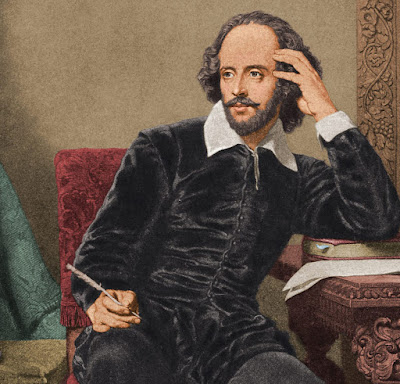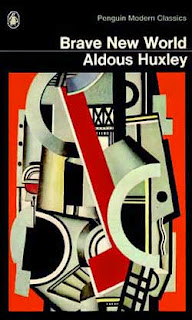Hamlet is a famous 5-act tragic play written by William Shakespeare. It is the longest play ever written by the playwright. It is one of the most cited literary works in the world, and since 1960 it has been translated into 75 languages, including Klingon. The play is chiefly noted for its psychological probing into the deepest core of the human mind. Accordingly, the play chronicles the story of Prince Hamlet, who undergoes a series of conflicts in the way of avenging his father’s murder. But this revenge attempt culminates to the deaths of not only to the villain but to the hero and some other characters as well.
Facts of the play
Full Title: The Tragedy of Hamlet, Prince of Denmark
Popular Title: Hamlet
Playwright: William Shakespeare
Genre: Revenge tragedy
Language: English
Number of Lines: 4042
Time written: Early seventeenth century, most probably between 1600 to1602.
Sources: Ur-Hamlet, a lost play possibly written by Thomas Kyd.
Hamlet Influenced: John Marston most probably wrote Antonio’s Revenge inspired by Hamlet.
First publication:
- The First Quarto or Bad Quarto was printed in 1603 from an unauthorized source and was entitled The tragicall historie of Hamlet Prince of Denmarke.
- The Second Quarto was published in 1604 under the aforesaid title.
- The First Folio was published in 1623 under the title of The Tragedie of Hamlet, Prince of Denmarke.
First performance: 1609
Major Characters: Hamlet, King Claudius, Queen Gertrude, Polonius, Ophelia, Laertes, Old Hamlet, Horatio, the Gravedigger, Rosencrantz and Guildenstern
Protagonist: Hamlet
Antagonist: King Claudius
Setting (time): The late medieval period
Setting (place): Elsinore, Denmark
Major themes: Revenge, corruption, madness, delay in action, mystery of death, and political intrigues
Symbols: The ghost; Yorick’s skull, flowers, weather, graveyard, mousetrap, fencing swords, Gravedigger, Hamlet’s costume changes, and poison
Conflict: The following conflicts are present in the play:
- Physical conflict: (a) when Hamlet slays Polonius (b) when Hamlet fights a duel with Laertes.
- Mental conflict: Hamlet and King Claudius displayed such conflict throughout the play.
Story of the play
The action starts from another world
When the play begins, Hamlet, the Prince of Denmark, is visited by a mysterious ghost who resembles his father, the recently deceased king. The ghost tells Hamlet that his father was killed by Claudius, the king's brother, who later took the throne and married Hamlet's mother, Gertrude. The ghost eggs on Hamlet to avenge his father's death by killing Claudius.
The task before Hamlet weighs heavily on him. He thought the ghost could be an evil spirit trying to mislead him. So Hamlet undergoes a series of psychological conflicts. Hamlet's uncertainty, anguish, and pain are what make the character so believable. He is arguably one of the most psychologically complex characters in literature. He is slow to act, but when he proceeds he is reckless and violent. We can see this in the famous "curtain scene" when Hamlet unknowingly kills Polonius.
Hamlet's love
Polonius' daughter Ophelia is in love with Hamlet, but their relationship has been broken since Hamlet learned of his father's death. Ophelia is instructed by Polonius and Laertes to reject Hamlet's advances. Eventually, Ophelia commits suicide as a result of Hamlet's confused behavior towards her and the death of her father.
A play within a play
In Act 3, Scene 2, Hamlet arranges actors to re-enact the murder of his father through the play The Murder of Gonzago to see Claudius’ reaction. He confronts his mother for the murder of his father and hears someone behind the curtain. Believing it to be Claudius, Hamlet stabs the man with his sword. It turns out that she has actually killed Polonius.
Rosencrantz and Guildenstern
Claudius realizes that Hamlet is trying to catch him and professes that Hamlet is angry. Claudius arranges for Hamlet to be sent to England with his old friends Rosencrantz and Guildenstern, who have been informing the king of Hamlet's state of mind.
Claudius has secretly sent orders to kill Hamlet upon his arrival in England, but Hamlet escapes the ship and trades his death order for a letter ordering the deaths of Rosencrantz and Guildenstern.
To be or not to be…
Hamlet returns to Denmark just as Ophelia is being buried, leading him to contemplate life, death, and the fragility of the human condition. The performance of this soliloquy is a big part of how the actors judge any actor who plays Hamlet.
Tragic ending
Laertes, the son of Polonius returns from France to avenge the death of his father. Claudius plots with him to make Hamlet's death seem accidental and encourages him to smear his sword with poison. He also sets aside a cup of poison, in case the sword is unsuccessful.
In the action, swords are exchanged and Laertes is mortally wounded with the poisoned sword after striking Hamlet with it. He forgives Hamlet before he dies.
Gertrude dies from accidentally drinking the poison cup. Hamlet stabs Claudius and forces him to drink the rest of the poisoned drink. Hamlet's revenge has finally been completed. In his last moments, he bequeaths the throne to Fortinbras and prevents Horatio’s suicide by pleading him to stay alive to tell the story.
Top Quotes
“To be honest, as this world goes, is to be one man picked out of ten thousand.”
― William Shakespeare, Hamlet
“Madness in great ones must not unwatched go.”
― William Shakespeare, Hamlet
“Though this be madness, yet there is method in't.”
― William Shakespeare, Hamlet
“To die, to sleep -
To sleep, perchance to dream - ay, there's the rub,
For in this sleep of death what dreams may come...”
― William Shakespeare, Hamlet
“Doubt thou the stars are fire;
Doubt that the sun doth move;
Doubt truth to be a liar;
But never doubt I love.”
― William Shakespeare, Hamlet
“Now cracks a noble heart. Good-night, sweet prince;
And flights of angels sing thee to thy rest. ”
― William Shakespeare, Hamlet
“So full of artless jealousy is guilt,
It spills itself in fearing to be spilt.”
― William Shakespeare, Hamlet
“When sorrows come, they come not single spies. But in battalions!”
― William Shakespeare, Hamlet
“God hath given you one face, and you make yourself another.”
― William Shakespeare, Hamlet
Photo by ahmed adly from Pexels














